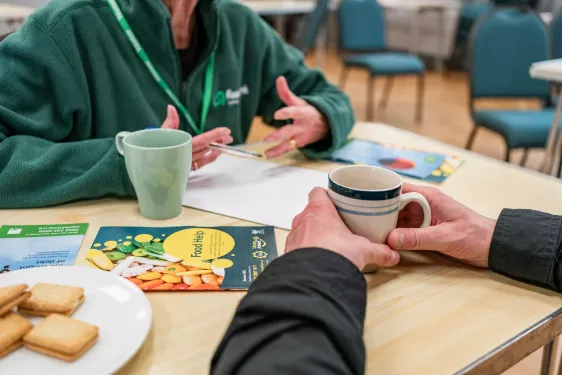We want to hear your story!
Share your story to help combat stigma, improve the foodbank, and campaign for change!
On this page:
The voices of people with lived experience are vital in shaping the work we do at Taff-Ely Foodbank. The voices of people with lived experience are vital in shaping the work we do at Taff-Ely Foodbank. The stories, experiences, and ideas of people who have used our services help counter the stigma surrounding foodbanks, and ensure the support we offer is as effective as possible.
In October 2025, we formed a lived experience group made up of local people who have faced hardship. This group meets regularly to discuss the issues facing local people facing hardship and to help shape the services our foodbank offers.
***Some names have been changed for anonomity****
Real stories
Lived Experience Panel
Bringing together people with lived experience to discuss the issues facing local people and families is vital in ensuring we can offer effective support. Our lived experience panel meets regularly and plays a key role in shaping the foodbank's services and fighting stigma.

